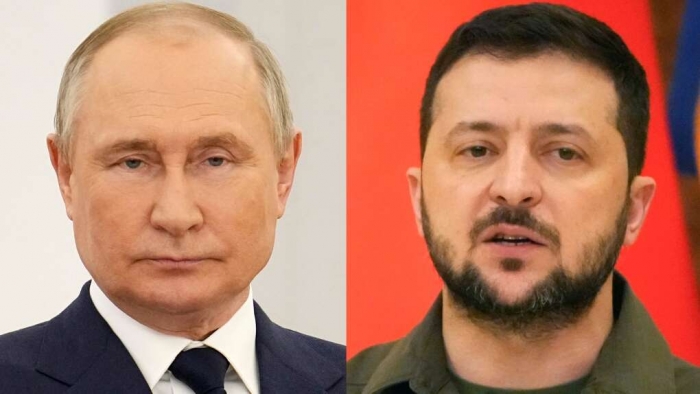WESTERN PERSPECTIVE
Russia, Ukraine trade allegations of chemical weapons use
Russia and Ukraine have accused each other at the global chemical weapons watchdog in The Hague of using banned toxins on the battlefield, the organisation said on Tuesday.
The Organisation for the Prohibition of Chemical Weapons (OPCW) said that the accusations were "insufficiently substantiated" but added: "The situation remains volatile and extremely concerning regarding the possible re-emergence of use of toxic chemicals as weapons."
Neither Russia nor Ukraine has formally asked the OPCW to investigate the alleged use of chemical weapons, it said.
Andriy Sybiha, Ukraine’s first deputy foreign minister, said he discussed Russia’s use of ammunition with chemicals on the battlefield with OPCW director Fernando Arias on Tuesday.
Sybiha informed Arias about the parliamentary ratification of an agreement that “opens up opportunities for organising OPCW technical assistance visits to Ukraine”, the ministry said in a statement.
Last week, the U.S. said Russia had violated the international chemical weapons ban overseen by the OPCW by deploying the choking agent chloropicrin against Ukrainian troops and using riot control agents "as a method of warfare" in Ukraine.
It followed Ukrainian assertions in April that Russia had increased its use of tear gas in the trenches.
Ukraine's General Staff said in a statement earlier this month its armed forces had recorded 1,891 cases of Russia using "ammunition equipped with dangerous chemical substances" in the year till April.
Russia has denied allegations of violating the Chemical Weapons Convention.
In documents posted on the OPCW website, Moscow accused Kyiv of using "a wide range of toxic chemicals against Russian servicemen and public officials", including fertilizers, pesticides and other banned toxins.
The OPCW said it had been monitoring the situation since February 2022, when Moscow invaded Ukraine.
Under the Chemical Weapons Convention, any toxic chemical used with the purpose of causing harm or death is considered a chemical weapon.
"It is against the Convention to use riot control agents at war on the battlefield. If used as a method of warfare, these agents are considered chemical weapons and, hence, are prohibited under the Convention," the OPCW said.
RUSSIAN PERSPECTIVE
Ukraine strikes oil facility in Donbass – authorities
Ukrainian forces have launched several missiles at civilian infrastructure in the Russian city of Lugansk, injuring at least five people and causing a large blaze at an oil depot, regional head Leonid Pasechnik has said.
The late Tuesday night attack was likely carried out using surface-to-surface Army Tactical Missile Systems (ATACMS) supplied by Washington, the head of Russia’s Lugansk People’s Republic (LPR) added. Five employees of the facility were hospitalized with moderate injuries, as emergency services were working at the scene to tackle the blaze.
“Ukraine is compensating its defeats on the front lines by shelling civilian targets,” Pasechnik said, adding that the attack also damaged a high-pressure gas pipeline and power lines, causing a partial blackout in the area.
The Russian Defense Ministry has yet to confirm the type of projectiles used in the strike. Over the past week, Russian air defenses intercepted at least 15 ATACMS missiles, according to Moscow, as Kiev increasingly targeted Russian oil refineries, energy facilities and other infrastructure in recent months.
In late April, US officials confirmed earlier media reports that the Pentagon had secretly shipped an unspecified number of long-range missiles to Ukraine as part of an arms package announced by President Joe Biden in mid-March.
The “goal” of supplying Kiev with ATACMS was to put more pressure on Crimea and allow Ukrainian forces to target the peninsula “more effectively,” the New York Times reported at a time, citing an unnamed Pentagon official.
Moscow said the provision of long-range missiles would only spell “more problems” for Kiev. Kremlin spokesperson Dmitry Peskov insisted that the use of ATACMS would not impact the outcome of the conflict, or prevent Russia from achieving its security goals.
Reuters/RT


































































